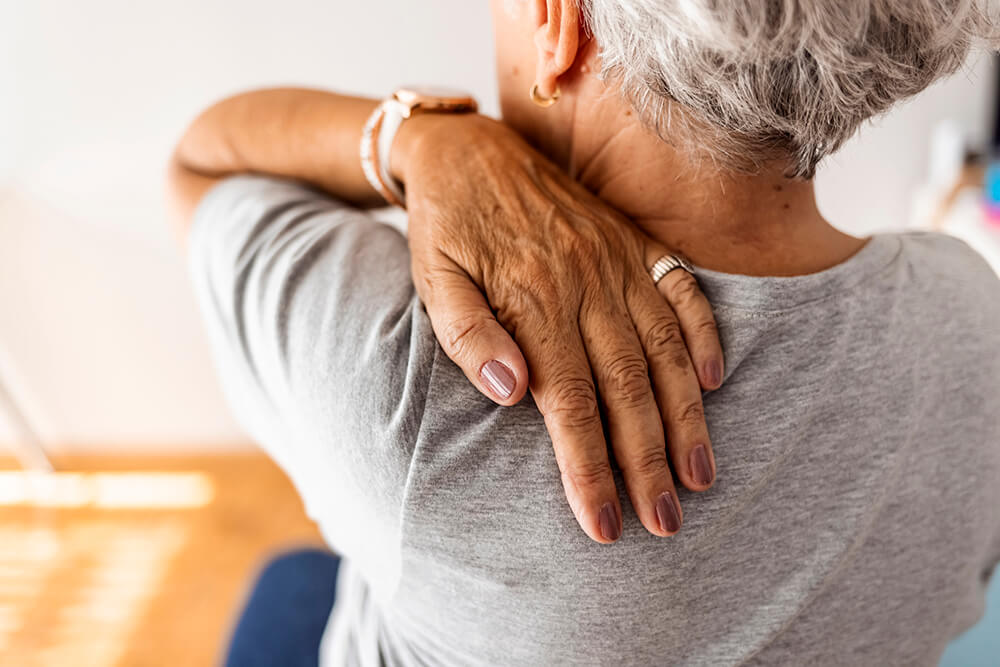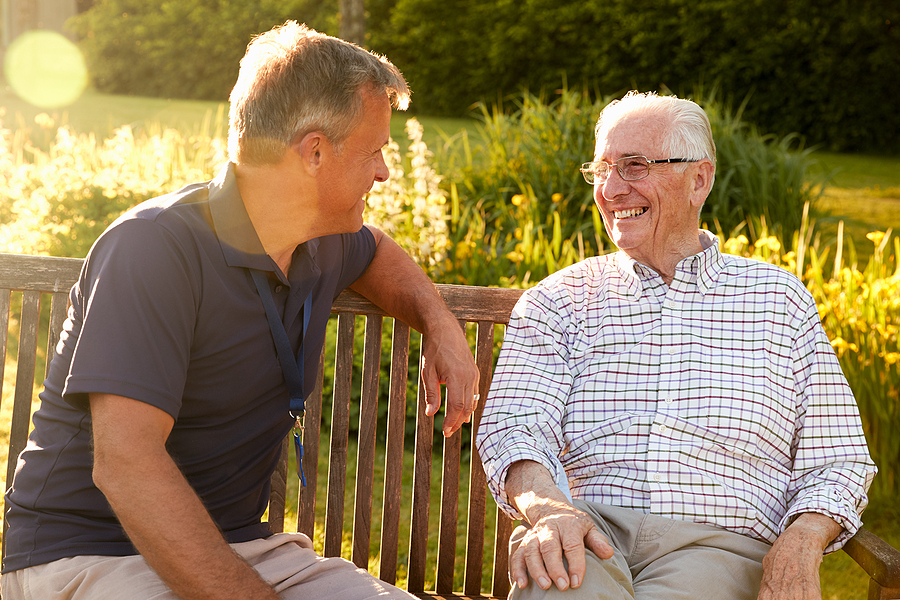Maintaining bone health is important to the body. Our bones support us, enable us to move, and keep our organs protected in place. Our bones also store important minerals and release them into the body when we need them. As we age gracefully, our bodies go through a natural transformation. While we may have once taken our bone health for granted, after surpassing the age of 50, our bones may begin to lose their density. This can result in significant health concerns, such as the development of osteoporosis.
Aging is a natural part of life, and with the right care and attention, it’s possible to maintain good health and vitality well into our senior years. Taking the time now to understand bone health and preserve it will help you to avoid future breaks and fractures, help prevent disease, and reduce pain. Let’s review some of the risks associated with bone health as we age and what you can do now to mitigate them.
Evading the Risks of Osteoporosis
Osteoporosis, the loss of bone density, affects 14 million Americans, according to the National Council On Aging. It is four times more common in women. Studies suggest that one in two women is impacted by osteoporosis. One in four men is likely to be affected.
People who have osteoporosis may experience bone fractures, which cause excruciating pain and can affect ongoing mobility. Osteoporosis may also be a cause of spine fractures and loss of height.
To avoid this, it is necessary to proactively maintain bone health. Spine fractures and any low bone density-related conditions may show little to no signs. Some of the early hints of this condition include:
- Loss of height by at least an inch
- Posture changes
- Lower back pains
- Shortness of breath
How to Strengthen Your Bones
The good news is you can reduce or avoid the risks of osteoporosis altogether. It is never too late to make positive changes in your daily routine. By following these tips, you can help strengthen or maintain your current bone density, allowing you to move around easily in years to come.
Eat More Calcium-rich Food
American Bone Health suggests eating three to four servings of calcium-rich foods each day. The suggested amount of calcium per day is 1,200 mg. You can get this from milk, cheese, yogurt, tofu, oranges, kidney beans, broccoli, and figs. Add these tasty items to your menu and reap their calcium-rich benefits, along with many others. Additionally, you may consider taking calcium and vitamin D supplements to help fortify your bones.
Move Around
Daily exercise, especially if it’s low impact, is key to maintaining bone health. According to Johns Hopkins Medicine, exercise can even strengthen your bones. Use strength training activities such as weights, resistance bands, body-weight exercises, and balance training. Even walking and performing general activities such as cleaning the house and moving around can make a difference in bone health. To make these activities even more fun, play your favorite music as you do household chores, or take an aerobics class with family and friends.
Secure Your Surroundings
Falling may cause bone fractures and can trigger other painful conditions. To avoid slips, trips, and falls, ensure that your home is safe to navigate. Modify spaces like bathrooms, and install railings that can assist you in case of a slip. Place non-skid mats on slippery floors. Corners should be well-lit, and when you can, remove obstructions from the room that may cause you to trip. If you have mobility concerns, using a cane or a walker can be a proactive step toward preventing future injuries.
Avoid Smoking and Excessive Alcohol Consumption
Smoking and drinking more than 1-2 alcoholic beverages per day can impact your mood, diet, and hormone levels, affecting the density of your bones. Avoiding smoking altogether and reducing or eliminating alcohol intake can help you avoid the risks of fractures, as well as improve your body’s absorption of essential minerals for your bones.
When In Doubt, Seek Your Doctor’s Advice
Knowing your bone density will help you know what steps you can take to reduce the likelihood of osteoporosis. Doctors can perform a dual-energy X-ray absorptiometry (DXA), a unique scan that measures how much calcium and other important nutrients are in your bones. The DXA measures the bone density at the spine, forearm, or hip. A unique device calculates a projected 10-year risk for any fracture in your body.
This scan is routinely done for women over 65 and men over 70. Some adults may need to test earlier, depending on several risk factors, which may include:
- Menopausal women with risk factors
- People who experienced a fracture after the age of 45
- Smoking or excessive alcohol use
- Weighing less than normal for your size and age
- Taking medications that affect bones
- Bringing Importance to Your Bones
Your bones are critical components of movement and impact your overall quality of life. Paying attention to bone health early on can help you avoid the risks of fractures and the harsh effects of osteoporosis in the future. With a balanced diet, consistent exercise, and routine tests, you can keep your bones strong, allowing you to stay independent.
The Oaks at Denville is all about living well. Our multi-awarded LivWell program highlights your holistic wellness, including your physical, emotional, and social state. For us, it’s all about the little details, which is why we are so attentive to your overall health. Talk to us about our community at Springpoint, and rediscover living at your best! We can’t wait to hear from you.



